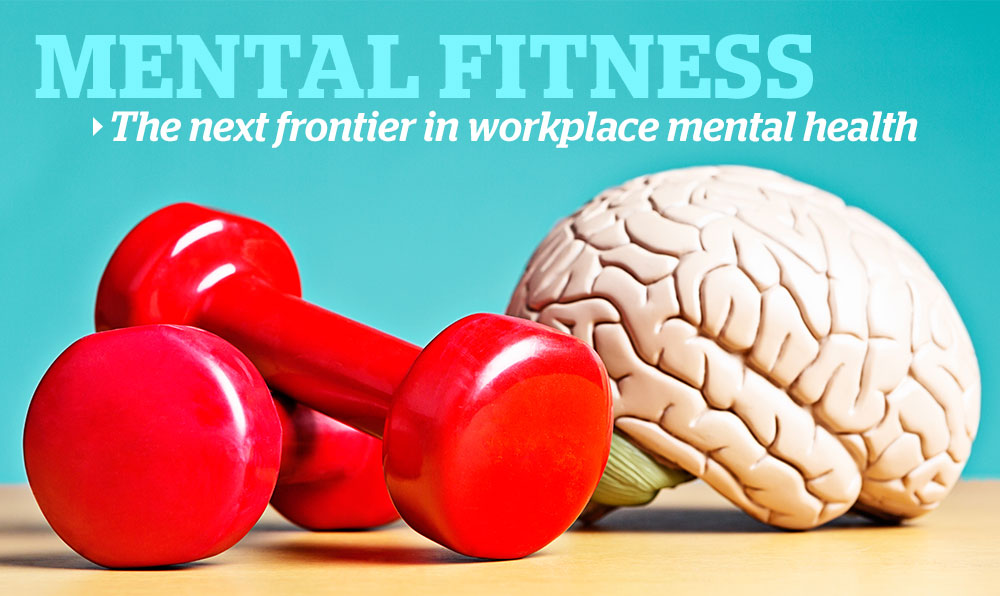

Columns/Blogs
Features
Mental Health
Ability to shift emotions on demand can aid mental fitness
By Bill Howatt

EDITOR’S NOTE: ‘Mental Fitness: The next frontier in workplace mental health’ is a weekly series, in partnership with Dr. Bill Howatt of Howatt HR Consulting in Ottawa. This series takes a deeper look at mental fitness — an approach to prevent mental harm and promote mental health.
We live in a society where we expect on-demand service for many areas of our life such as food, travel and entertainment.
One example is the massive on-demand choice of movies we can watch whenever we choose. Many pick movies to influence our mood. I enjoy comedies that I know will get me laughing, and I love watching happy people who typically leave me in a good mood at the end of the movie.
Watching a movie is an example of focus shifting. However, we can learn to shift focus on our own without spending two hours in a theatre, or in front of a TV.
The ability to shift emotions on demand is a good microskill to practise as it enables you to move from unpleasant to pleasant emotions at will. To see its value, think back to a recent time when you were in a good mood and suddenly received negative information that changed your feeling to unpleasantness.
The negative stimulus caused your lizard brain, which is in charge of the limbic system, to release chemicals that changed how you felt. The lizard brain is pretty much all a lizard has for brain functioning. It controls flight, feeding, fear, freezing up and fornication.
It makes sense to want to always be rational and in control of our emotions, but that is not how the brain operates. Because the lizard part of the brain moves much faster than our conscious brain, many people react to emotions as if they were factual.
The lizard brain picks up a real or perceived fear and fires off warning signs that are not blinking lights but powerful emotions that grab our attention. While this is happening, the conscious brain is trying to catch up because it usually is a few seconds behind.
The typical reaction for a person who has never been trained to manage their unpleasant emotions is to get away from them or stop them. This is where many mistakes are made, relationships are lost, and poor decisions are made in the heat of emotions with the lizard brain.
Psychologically Safe Workplace Awards provide employers tools, data on mental health
Three steps for shifting emotions on demand
Accept that there is no off switch for your lizard brain: You will never be able to stop your lizard brain or all the negative stimuli you will experience. Life happens, and things will occur whether we want them or not.
Unfortunately, many do not understand that we spend most of our lives in unpleasant emotions because of faulty cognitive scripts that keep us hyper-focused on things we do not want, such as fear of failure, poor relationships, or regrets.
We can shift our focus on demand when we accept that we own our thinking and behaviours. Emotions do not tell us what to do.
Choose how you want to feel: When you are experiencing an unpleasant emotion (i.e. feeling rejected because a friend did not call you back), name it. Try to understand why you feel the way you are, own your emotional state, and decide what you want to feel.
One step toward developing mental fitness is realizing we have much more choice over what we think and do than we think, especially when we feel trapped in unpleasant emotions.
Through acceptance, practice, and repetition, we can believe we have the power to decide how we want to feel. When we are open to this possibility, we can learn how to shift focus and emotions on demand.
Act: Transforming emotions on demand requires healthy actions. Like picking the movie you want to watch on demand, you can change how you feel by where you put your focus, intention and energy.
Be clear on what you will do to shift your emotions. Ask: “What am I willing to do to get the feeling I want?”
You must be willing to do something. You can change your emotion by shifting your focus to something you enjoy doing. It does not have to be anything major — possibilities include calling a friend, going for a walk alone or with a pet, meditating, or anything else you enjoy.
When you shift your focus, you leverage the conscious part of your brain. Your lizard brain has done its job by warning of something that has resulted in unpleasant emotions.
Once you acknowledge there is no immediate danger, you can task your powerful conscious brain to shift your focus and create pleasant emotions on demand.
Mastering this microskill will increase your emotional well-being.
 Dr. Bill Howatt is the Ottawa-based president of Howatt HR Consulting.
Dr. Bill Howatt is the Ottawa-based president of Howatt HR Consulting.
If there is a particular microskill or topic you would like to see Dr. Howatt write on that supports employees’ mental health in the workplace, please send your request to Talent Canada editor Marcel Vander Wier.
Print this page